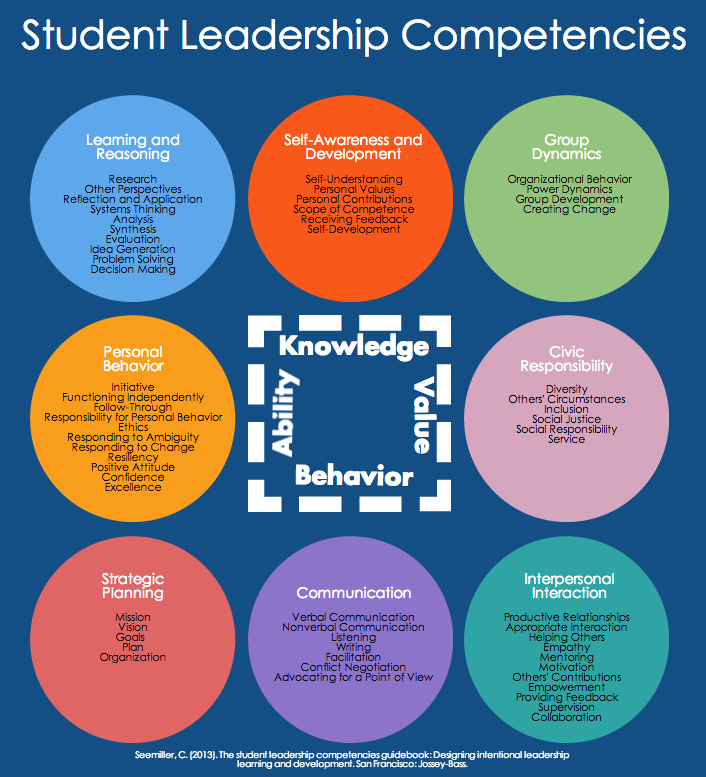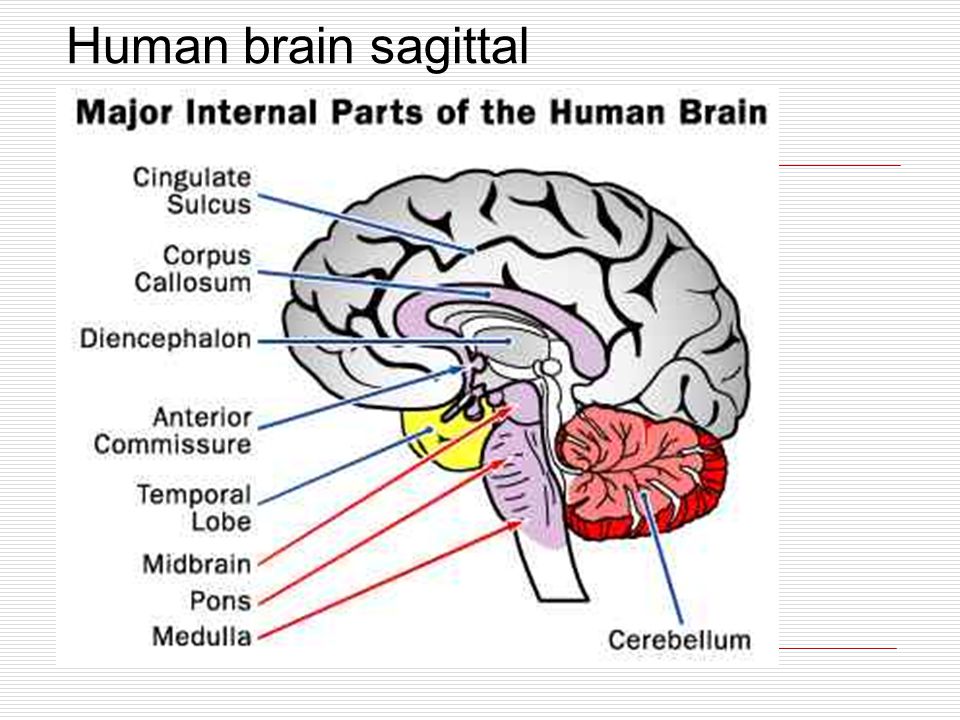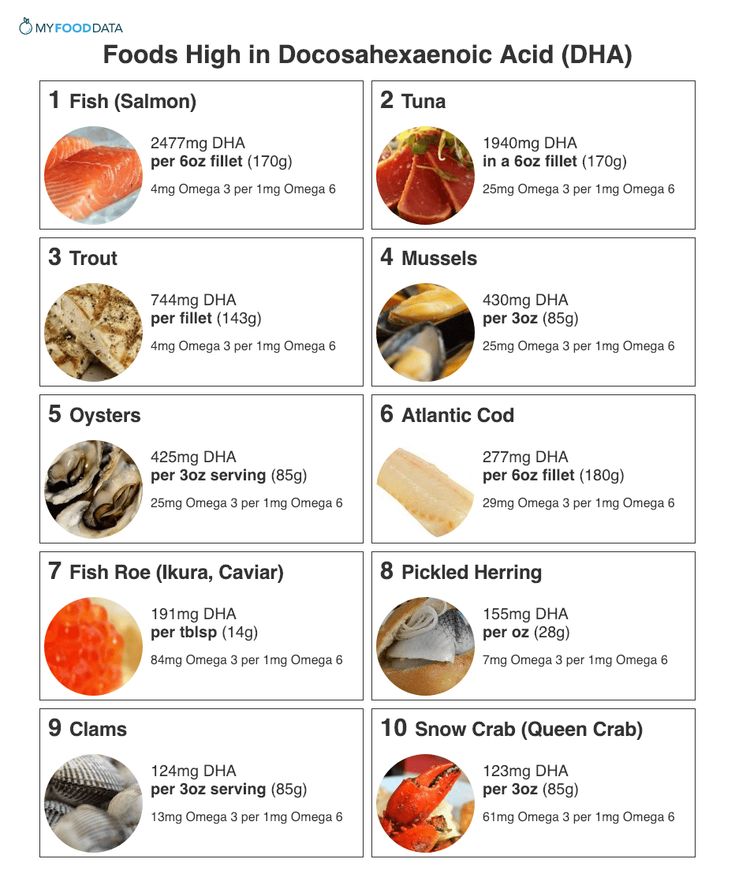Rejection by father to daughter
Practical Ways to Heal from a Father’s Rejection
A father is a daughter’s first experience with the male gender. He should demonstrate what love looks like and how she should be treated by a man. It is through her father’s eyes that a woman should feel valued, loved and affirmed—but what if she doesn’t?
What if a father’s actions teach his daughter that she is not valued or loved at all? What if she feels rejected by her dad instead? If this rejection happens not once, but several times throughout her lifetime, she may find it difficult to heal.
It is unfathomable to think that a father would ever reject his own daughter, but it happens. A forgotten birthday, an missed event, or the reluctance to listen can all communicate rejection in the heart of a daughter. Consequently, the woman incurs unexpected and unwanted wounds from her dad’s actions.
The pain of these experiences can potentially last a lifetime. She can find herself crippled in relationships with men, debilitated in her self-esteem, and fearful of experiencing this same rejection from others. Although a father’s rejection is painful to experience, it is possible to heal from this pain.
Below are 7 practical ways to heal from a father’s rejection.
Photo Credit: Getty Images
1. Grieve
If we have experienced rejection from our fathers, an obvious, but sometimes ignored step, is that of grieving. Sometimes we need to communicate to ourselves that it is okay to acknowledge and grieve the pain of rejection. Although it may be tempting to excuse or dismiss the pain, we must give ourselves permission to grieve what has been lost.
This may mean grieving our childhood, important milestones, or relationships that have been negatively impacted. Strength does not mean we have to be a superwoman grinning and bearing our pain. We can take the necessary time to grieve rejection from our fathers.
In fact, the Bible encourages us to mourn in Matthew 5:4 (KJV) when it says, “Blessed are they that mourn: for they shall be comforted.”
You may be questioning how someone who mourns pain of this nature could be blessed. The blessing is not in the mourning, but in the promise of being comforted. This comfort is offered from God through the pages of Scripture and it is available for you. If you are grieving the rejection of your father, know that you can find safety in the grieving process because God promises that you will be comforted.
The blessing is not in the mourning, but in the promise of being comforted. This comfort is offered from God through the pages of Scripture and it is available for you. If you are grieving the rejection of your father, know that you can find safety in the grieving process because God promises that you will be comforted.
Related: Check out Kia's FREE podcast: Hope for Women with Father Wounds - listen to the first episode now!
Photo Credit: Thinkstock/Demaerre
2. Develop Your Relationship With God
When a woman is rejected by her father, this may give her a distorted view of God. She may be tempted to perceive that God is like her father and will reject her in the same way. In order to develop a healthy view of God, a woman must invest in getting to know who God is through the reading of His word.
In Matthew 11:28-30 (KJV) we see Jesus extending an invitation to those who are weary and burdened. He says,
“Come to me, all you who are weary and burdened, and I will give you rest.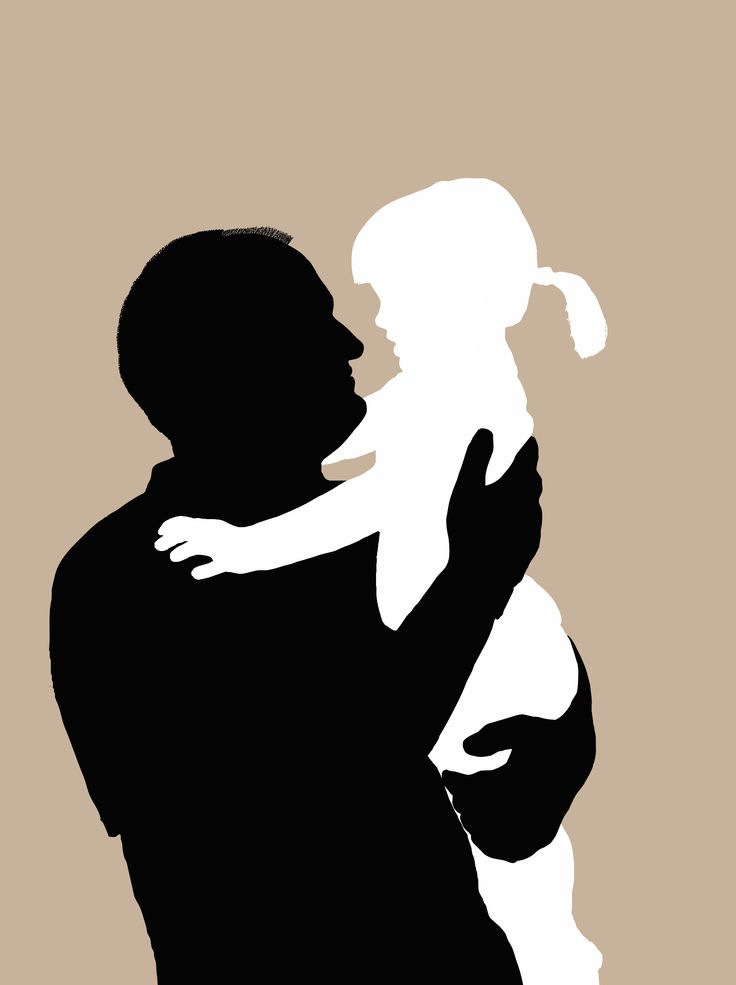 Take my yoke upon you and learn from me, for I am gentle and humble in heart, and you will find rest for your souls. For my yoke is easy and my burden is light.”
Take my yoke upon you and learn from me, for I am gentle and humble in heart, and you will find rest for your souls. For my yoke is easy and my burden is light.”
Although a woman may experience rejection from her father, prior to her birth she was already accepted by God. Before we were born, God knew us and loved us. As it says in Psalms 139:13, “For you created my inmost being; you knit me together in my mother's womb.” God overwhelmingly communicates his desire to know and commune with His people. He desires to take the pain experienced through rejection and exchange it for the unconditional love found in Christ alone.
This relationship offers a pathway by which a woman wounded from the rejection of her father can know unexplainable peace and healing. We can take our pain to God in prayer and trust that He will hear, accept, and comfort us in our distress.
Photo Credit: Thinkstock/Fizkes
3. Write a Forgiveness Letter
“Have you written a forgiveness letter to your father?” were the words my counselor asked me several years ago. These words were a catalyst for healing from the rejection of my father because it helped me process pain in a way I had previously been unable to do.
These words were a catalyst for healing from the rejection of my father because it helped me process pain in a way I had previously been unable to do.
In fact, initially, I had a difficult time completing the letter in one sitting. There were times in the letter writing process that uprooted deep-seated hurts repressed for years. Those hurts had to be grieved before I could continue writing.
Sometimes we suppress our pain in order to survive, but God cannot heal our hearts if we are reluctant to be truthful about our hurt. We must be willing to surrender our pain to the One that can do something about it. In 1 Peter 5:7 (NLT) it says, “Give all your worries and cares to God, for he cares about you.” A forgiveness letter is a practical tool that we can use to give the pain of rejection to God.
Photo Credit: Unsplash
4. Seek Wise Counsel
For some, there is a stigma associated with seeking a counselor to process pain. God, however, encourages us to seek wise counsel in His word. In Proverbs 11:14 it says, “Where no counsel is, the people fall: but in the multitude of counselors there is safety.” Counseling is another practical resource to help women heal from a father’s rejection.
In Proverbs 11:14 it says, “Where no counsel is, the people fall: but in the multitude of counselors there is safety.” Counseling is another practical resource to help women heal from a father’s rejection.
It is not a sign of weakness, rather a demonstration of tremendous strength. The act of seeking counsel demonstrates a desire to heal, and sometimes our healing may require assistance from others. God has uniquely gifted individuals to help others process their pain as it says in Proverbs 20:5 (ESV): “The purpose in a man’s heart is like deep water, but a man of understanding will draw it out.”
Photo Credit: Thinkstock/Wavebreakmedia
5. Identify Lies We Told Ourselves
There may be lies women believe as a result of experiencing rejection from a father. Statements like, “I am unloved, I am unwanted, and I am not cherished,” are a few of the lies that might reverberate in a woman’s mind. The Bible, however, tells us that Satan is the father of lies in John 8:44. Women who have been rejected by their fathers must diligently identify lies and counter them with the truth of God’s word.
Women who have been rejected by their fathers must diligently identify lies and counter them with the truth of God’s word.
Photo Credit: Thinkstock
6. Replace Lies with Truth
In Romans 12:2 (NIV) it says, “Do not conform to the pattern of this world, but be transformed by the renewing of your mind. Then you will be able to test and approve what God’s will is - his good, pleasing and perfect will.” In order to distinguish between the truth and a lie, we must know what truth is. This means we must be intentional about reading what God says about His love for us in His word.
If we know that John 3:16 (NIV) says, “For God so loved the world that he gave his one and only Son, that whoever believes in him shall not perish but have eternal life,” then we can use that truth to debunk the lie that says we are not loved. The devil would have us believe we are not loved so that we won’t experience the abundant love God wants to give us. We must refuse to accept the lies and cling to truth.
Photo Credit: Thinkstock
7. Choose Joy
In this life, no one is exempt from experiencing pain. Sometimes the pain we experience deceives us into thinking that our pain is much worse than that of another. Whereas this may be true, we must accept the reality that God has allowed the pain we experience in our lives for a reason. He has a purpose and a plan for everything, including the rejection of a father.
In saying that, we have a choice in how we respond. Although it may be tempting to wallow in the pain, this will not propel us forward. God’s word offers a suggestion that is the antithesis of this. In Philippians 4:4 (NIV) the apostle Paul commands us to, “Rejoice in the Lord always…” This option may seem unrealistic when we consider our circumstances, however, when we look to Christ and reflect on His suffering, we are able to gain a new perspective on pain.
God is able to use the pain from a father's rejection to mature our faith, as it says in James 1:2-3. “Consider it pure joy, my brothers and sisters, whenever you face trials of many kids, because you know that the testing of your faith produces perseverance.” In addition to producing Christ-like character in us, God is able to use our healed hearts to encourage others.
“Consider it pure joy, my brothers and sisters, whenever you face trials of many kids, because you know that the testing of your faith produces perseverance.” In addition to producing Christ-like character in us, God is able to use our healed hearts to encourage others.
I am evidence of this truth, and if you have experienced the rejection of a father, He can do this incredible work in your life too.
Kia Stephens is a wife and homeschooling mama of two who is passionate about helping women know God as Father. For this reason, she created The Father Swap Blog to be a source of encouragement, healing, and practical wisdom for women dealing with the effects of a physically or emotionally absent father. Each week through practical and biblically sound teaching she encourages women to exchange father wounds for the love of God the Father. For more encouragement download Kia's free ebooks, Hope for the Woman With Father Wounds and Forgiveness Hacks: 5 Strategies to Help You Forgive. Additionally, you can connect with Kia on Facebook, Instagram, Twitter, and Pinterest.
Additionally, you can connect with Kia on Facebook, Instagram, Twitter, and Pinterest.
Photo Credit: Unsplash/Jared Erondu
Originally published Tuesday, 09 June 2020.
Dismissing Parents and the Rejected Adult Child
Nothing can feel more heart-sickening than being invalidated, pushed away, or rejected by your parent. For our not-too-distant ancestors, parental rejection in childhood was a death sentence. Even when we grow up, this connection to the parent, be it real or fantasy, remains extremely powerful. The need to maintain this connection is coded into our human DNA and emotional systems. Your age is irrelevant. Some of you reading this will be in your early 20s and some will be in your 80s. This material applies to all of us just the same.
I was 14 when my father left. He and my mother had divorced when I was 5. I idolized my dad until one day on the way to school he told me that he was getting married (I didn’t know he had a girlfriend) and we were moving. I struggled with this new set of circumstances and moved in with my mother across town while I figured out what I wanted to do. But it didn’t take long. He simply told me that he was tired of raising kids and wanted a life of his own. Shortly after that, he and his new wife moved away, adopted two infants, and he never called me or had any contact again.
I struggled with this new set of circumstances and moved in with my mother across town while I figured out what I wanted to do. But it didn’t take long. He simply told me that he was tired of raising kids and wanted a life of his own. Shortly after that, he and his new wife moved away, adopted two infants, and he never called me or had any contact again.
I wish my story was special, but such events are fairly common. Robert is in his mid-30s. His mother died several years ago. His mother and father had been close, and his father had been devastated by her death. Robert had hoped that he and his father could continue to have a strong relationship, but his father seems uninterested. He says he wants to get together and that he will call back later. But he never does. It’s always “I’ll call you soon.”
Jennifer’s mom rarely acknowledges any of Jennifer’s accomplishments. And, Jennifer is a high performer at work and has achieved some truly amazing milestones for her age. But, her mother only notices shortcomings and criticizes inconsequential aspects of Jennifer’s life (like the color of the dishtowels).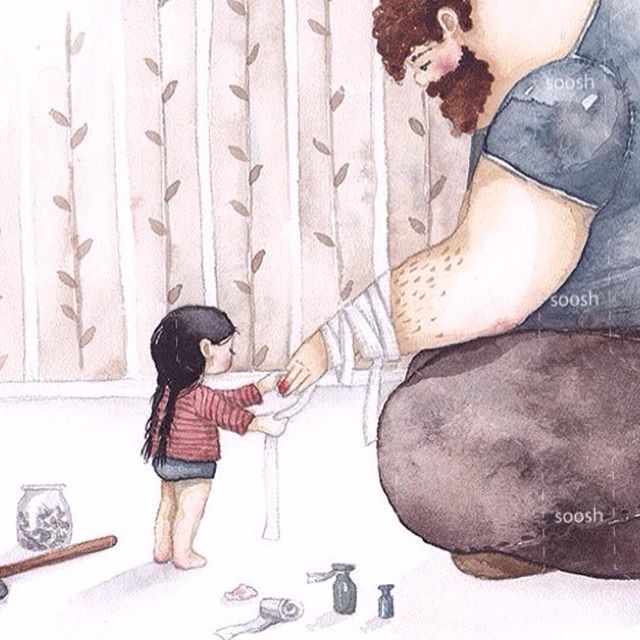 At the same time, Jennifer’s mother showers accolades and affection on the girlfriend of Jennifer’s younger brother who is not nearly as accomplished.
At the same time, Jennifer’s mother showers accolades and affection on the girlfriend of Jennifer’s younger brother who is not nearly as accomplished.
I have so many similar examples that I cannot do them all justice. But, they all have something in common … a parent with a dismissing attachment style who cannot tolerate his or her own pain. And guess who reminds them of that pain? You do. And so, you must go.
In many ways, the child in these examples is very similar to the proverbial “scapegoat.” As the scapegoat, your purpose is to carry the sins (or pain) of the parent out into the wilderness where you will shoulder the burden. In so doing, the parent is allowed to turn away from, and deny their pain … and of course, turn away from and deny you. To make matters worse, both the scapegoat child and the sacrificing parent are unlikely to be aware that they have enacted this pattern. The unaware child may then accept the pain and shortcomings as her own and adopt them as part of her identity.
Take the case of Aisha. Her mother always accuses her of being overly emotional and reactive. Aisha’s mother is extremely hostile and attacking. She cannot tolerate any suggestion that she is anything other than perfect, has no insecurities, and is sure to tell anyone who crosses her how wrong they are. Aisha learned from a young age that the only way she could escape her mother’s wrath and rejection was to acquiesce and appease her mother by apologizing and showing her understanding of how wrong she (Aisha) was. Her mother then shamed her for being acquiescent and apologetic. “You’re so weak,” Aisha’s mother would tell her.
The truth is that there never was anything wrong with Aisha or any of the adult children in the previous examples. Aisha was simply trying to cope with her mother’s hostility. It was her mother who felt insecure and full of shame, but she couldn’t tolerate these feelings, so she projected them onto Aisha.
In Jennifer’s case, her mother had dropped out of college when she got pregnant with Jennifer.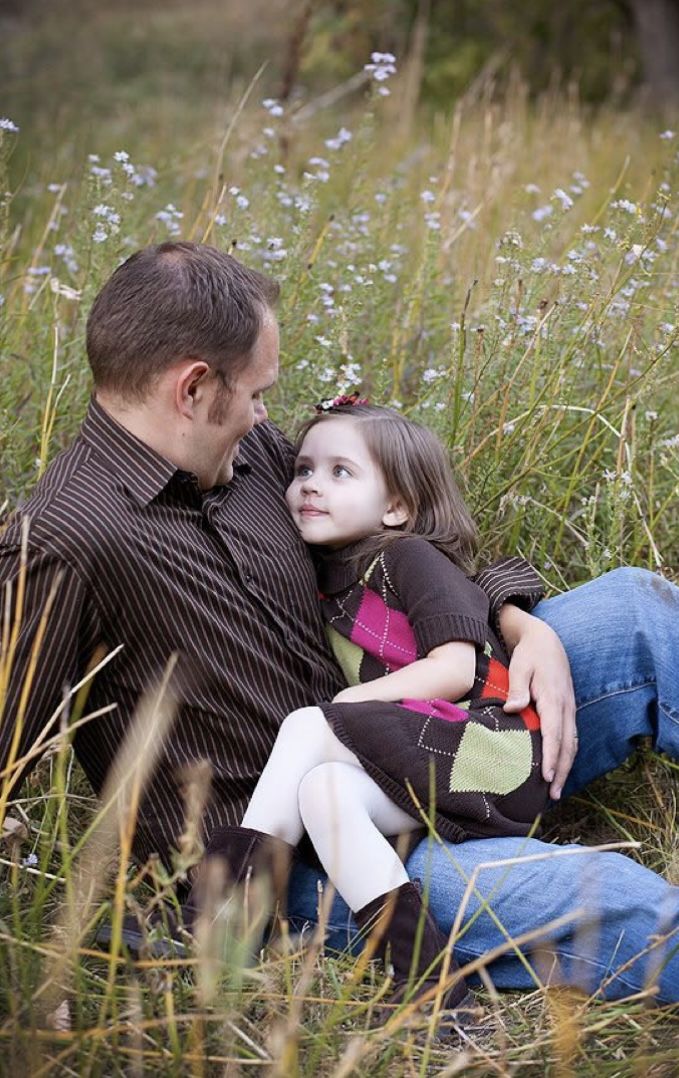 She never finished her degree and her marriage failed. Jennifer’s success and her healthy marriage reminded her mother of her own lost aspirations and dream of a happy home. Again, there is nothing wrong with Jennifer.
She never finished her degree and her marriage failed. Jennifer’s success and her healthy marriage reminded her mother of her own lost aspirations and dream of a happy home. Again, there is nothing wrong with Jennifer.
Nor is there anything wrong with Robert whose father cannot cope with the pain of his lost wife and wants to move on with as few reminders as possible. It is the parent’s difficulty tolerating pain, their own perceived shortcomings, and their insecurities that are the problem.
I am not saying that all of us who have suffered parental rejection are blameless. Most of us have engaged in behaviors that hurt people or that we are embarrassed about. But, you should at least question the balance between what parts of this are yours and what parts are your parent’s unresolved issues.
Here are two questions that can help you determine the balance of your own issue vs. unresolved issues in your parent.
- Can you talk to your parent openly about how you feel about your relationship?
- Can you tolerate the idea that there is nothing inherently wrong with you?
I am always amazed at people’s reticence to have either of these conversations.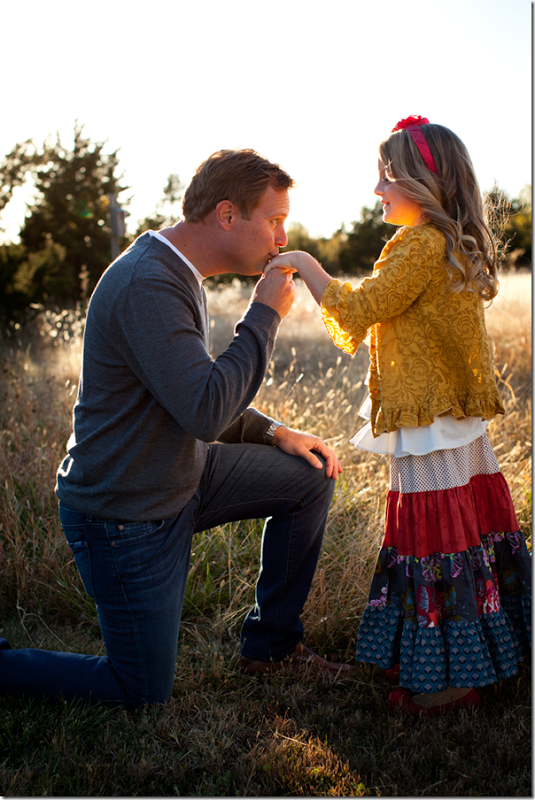 I hear things like, “she is old and there is no sense in hurting her now.” “I couldn’t do that to her.” “He wouldn’t understand anyway, and it would just upset him.”
I hear things like, “she is old and there is no sense in hurting her now.” “I couldn’t do that to her.” “He wouldn’t understand anyway, and it would just upset him.”
Think about this; the primary way that dismissing people tend to see themselves as is strong and confident. After all, that is what they did when many of you were little … they kept looking strong and confident and it was everyone else who was anxious and insecure. But now, in adulthood, we all of a sudden view them as so fragile that they cannot tolerate a direct honest conversation. And so, you can see that they really could never tolerate that conversation and were not as secure as might appear.
The key thing to realize is that the direct honest conversation is not for your parent. It would be rare (but it does happen) for the dismissing parent to tell you that they were sorry and that they understand how you felt about their impact on you. So, you probably are not going to get that. The conversation is really for you … for you to break the pattern of splitting the good and bad parts of the self and putting them in different places (like one person keeps all the good and the other all the bad) … So that you can say, I am not carrying the shameful bad parts for you anymore and I am going to see you as a whole person. And I am going to be a whole person with all of my good parts and bad parts rolled into one.
And I am going to be a whole person with all of my good parts and bad parts rolled into one.
And, if you can get to this point (which, by the way, is the best thing you can do for your own children), you should be able to tolerate the idea that nothing is really wrong with you.
One reason that people hold onto the idea that something is really wrong with them is to preserve the belief that their parent really does love them. After all, if my parent is rejecting me because I am bad, then I can believe that they really love me. But, if my parent is rejecting me and there is nothing wrong with me, then they must not really love me.
Obviously, this belief is intolerable to a child. It is slightly easier for an adult to grapple with but still a significant challenge. The likelihood is that your parent did love you and that they were simply enacting subconscious patterns that were passed onto them from their own parents. Ask them and you will probably find out that this is true. It would be a very rare parent who would say to themselves, “I think I will not love my child and reject them so that they grow up feeling bad about themselves and struggle in relationships.” Most people try to do their best even if that best occurs in the context of being unaware or blind to the patterns they are enacting.
It would be a very rare parent who would say to themselves, “I think I will not love my child and reject them so that they grow up feeling bad about themselves and struggle in relationships.” Most people try to do their best even if that best occurs in the context of being unaware or blind to the patterns they are enacting.
So, shed some light on those patterns that have been lurking in the shadows and have that difficult conversation.
Abandonment by father or adult daughter
Hello. my sister is 19 years old, my dad adopted her at 2 years old. got into bad company and probably will get a suspended sentence, and her father works in the police. A police officer cannot have a criminal record. Is there any way to end this relationship?
, Lyudmila Kozina, Moscow
abandonment of the child refusal of the child by the father refusal of the daughter
Lyubov Davlyatchina
Lawyer, St.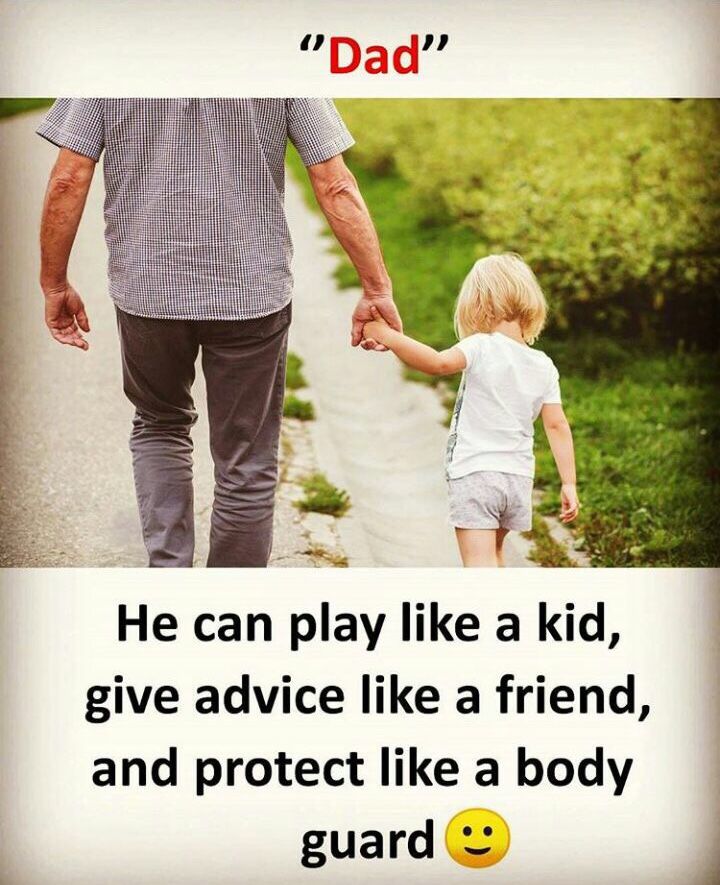 Petersburg
Petersburg
Expert
only through the court - by deprivation of parental rights (the plaintiff is the daughter herself). The current legislation does not provide for the abandonment of parents from children.
Vadim Erkhov
Lawyer, Moscow
The father cannot refuse his duties. June 2013, 08:16
Similar questions
Getting an education
What problems will arise if I take my daughter's documents from the technical school?
hello, my daughter is not an adult and I can't pick up documents from the technical school. they say that they will be registered in the cdn and stuff like that. what problems will appear if I take my daughter's documents from the technical school? she does not want to study there, because she realized that she did not like the profession
, question No. 3604190, Rimma, Vladivostok
3604190, Rimma, Vladivostok
Family law
Who should sue the biological father or ex-husband?
Hello, the child was registered with the ex-husband, since 300 days have not passed since the divorce. Who should sue the biological father or ex-husband?
, question No. 3603336, Olga, Moscow
Family law
Or can the court apply to confirm kinship?
Good afternoon, I wanted to ennoble the grave of my grandparents, these are my father’s parents, my father is deprived of parental rights, I don’t know his location, I need to confirm the relationship, but I can’t do this because there is no birth certificate, How can I be in this situation to look for a father? Or can the court go to confirm kinship? My mother, who was responsible for the burial, also died, at the MFC they said it was necessary to confirm the relationship with her father
, question no. 3603332, Marina, Moscow
3603332, Marina, Moscow
Law of contract
Do I have to sue as an heir or do I have the right to sue as a daughter?
Good afternoon. During his lifetime, my father made a purchase and sale, he changed his 3-room apartment for a 1st one. A month after the transaction, he died. Now I want to challenge this deal. Do I need to apply for an inheritance? Do I have to sue as an heir or do I have the right to sue as a daughter?
, question No. 3602902, Maya, Kazan
Alimony
Or can she claim that she did not receive any money?
I am a father. But in the birth certificate, the mother put a dash. I pay for the maintenance of my daughter by agreement. I asked to transfer to my grandmother's card. I brought a card for a child to Tinkoff to transfer money there and she used it. If paternity is established, will these transfers be counted towards child support? Or can she claim that she didn't receive any money?
, question №3602635, Mikhail, Moscow
my niece has a daughter of 6 years old
Hello! My niece has a daughter of 6 years old, whose father lives in the territory Ukraine (we live in the Lugansk region).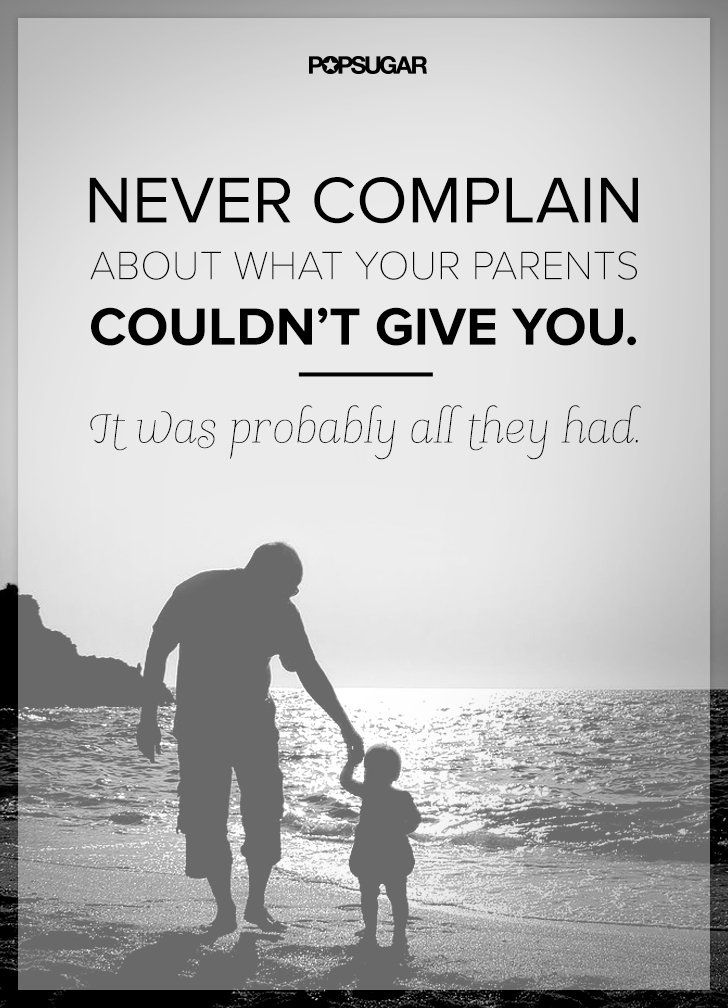 He has not been raising a child since her birth, he has never even seen her. Now he has agreed to write a refusal from the girl. Tell me, please, where should he go first? What is the process of the procedure itself? Thank you.
He has not been raising a child since her birth, he has never even seen her. Now he has agreed to write a refusal from the girl. Tell me, please, where should he go first? What is the process of the procedure itself? Thank you.
, Natalia, Rostov-on-Don
deprivation of paternityAlcoholismAlcoholism at work
Nadezhda Frolova
Lawyer, Moscow
Hello! So far, the Republic has no laws of its own. According to the bill of the LPR IC, it is impossible to abandon a child, but the child's father can be deprived of parental rights. According to Article 70 of the Draft Law of the Family Code of the Luhansk People's Republic:
1. Deprivation of parental rights is made in court.
Cases on deprivation of parental rights are considered on the application
of one of the parents or persons replacing them, on the application of the prosecutor, as well as
on the applications of bodies or organizations that are responsible
for the protection of the rights of minor children (guardianship and guardianship authorities,
commissions for minors, organizations for orphans and 90,027 children left without parental care, and others).
2. Cases of deprivation of parental rights are considered with the participation of
prosecutor and body of guardianship and guardianship.
3. When considering a case on deprivation of parental rights, the court decides
the issue of collecting child support from parents (one of them),
deprived of parental rights.
4. If the court, when considering a case on deprivation of parental rights
, finds signs of a criminally punishable act
in the actions of the parents (one of them), it is obliged to notify the prosecutor about this.
5. The court is obliged within three days from the date of entry into force of
of the court decision on deprivation of parental rights, send an extract from this
court decision to the civil registry office at the place
of the state registration of the birth of the child.
The court can deprive parental rights only on the grounds of Article 69 of the LNR IC:
Parents (one of them) may be deprived of parental rights if
they:
evade fulfilling the duties of parents, including
maliciously evading the payment of alimony;
refuse without good reason to take their child from
from a maternity hospital (department) or from another medical organization,
from an educational institution, an institution of social protection of the population, or
from similar organizations;
abuse their parental rights;
mistreat children, including physical
or mental abuse of them, encroach on their sexual integrity
;
are patients with chronic alcoholism or drug addiction;
committed an intentional crime against life or health
their children are either against the life or health of their spouse.
The list is exhaustive. Termination of parental rights is a last resort and it is not common for courts to terminate parental rights. But on the basis of article 71 of the LPR IC:
1. Parents deprived of parental rights shall lose all rights based on the fact of
kinship with a child in respect of whom they were
deprived of parental rights, including the right to receive maintenance
from him (Article 87 of this Code), and also the right to benefits and
state benefits established for citizens with children.
2. Deprivation of parental rights does not release parents from the
obligation to support their child.
3. The issue of further cohabitation of a child and parents
(one of them), deprived of parental rights, is decided by the court in the manner
established by housing legislation.
4. A child in respect of which the parents (one of them) are deprived
of parental rights retains the right of ownership of the dwelling or
the right to use residential premises, and also retains
property rights based on the fact of
kinship with parents and other relatives, including the right to receive an inheritance.
5. If it is impossible to transfer the child to another parent, or in case of deprivation of parental rights
of both parents, the child is transferred to
custody of the guardianship and guardianship authority.
6. Adoption of a child in case of deprivation of parents (one of them)
parental rights is allowed not earlier than six months from the date of
issuance of a court decision on the deprivation of parents (one of them) of parental rights
.
i.e. the father of the child after the deprivation of his parental rights is obliged to pay alimony.
Best regards, Hope.
1 person is registered in the house, and the fee comes for 2. Where to go to correct the receipt.
, question No. 3603898, Irina, Orenburg
Division of property
does he claim the children's house?
I bought a house for my children with maternity capital.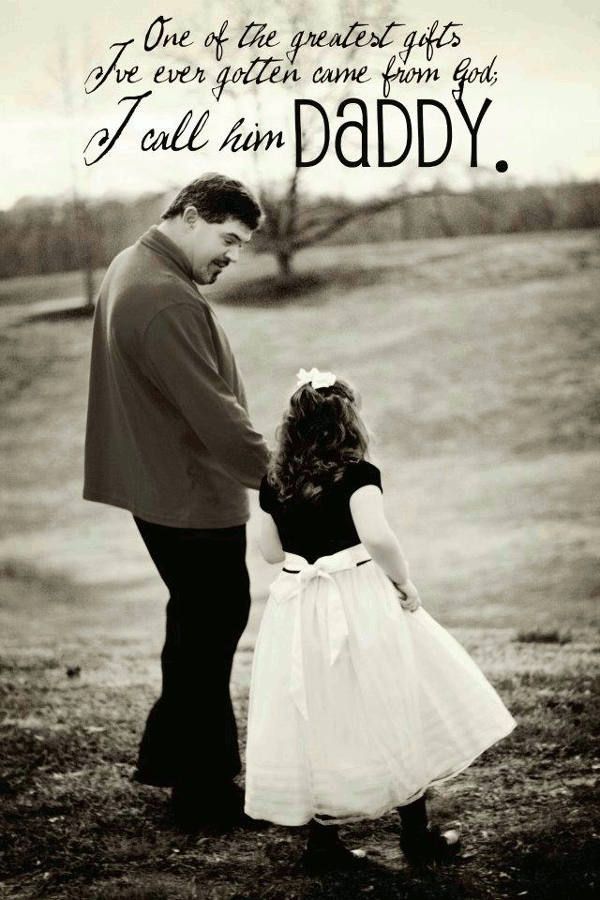 I'm getting married to a man, he is not the father of the children, if something happens during a divorce, can he claim the children's house?
I'm getting married to a man, he is not the father of the children, if something happens during a divorce, can he claim the children's house?
, question No. 3603042, Julia, Rostov-on-Don
Inheritance
Where do I go to get a duplicate death certificate?
My mother recently learned about the death of her father, who lived with another family all his life. His address was never known. Where can I go to get a duplicate death certificate? A birth certificate proving a relationship with her father is available.
, question No. 3602670, Dmitry, Moscow
Family law
The situation is this, I am pregnant, we do not live with the father of the child, I want to be no rights to the child
Good afternoon, please tell me how to draw up a contract with the father of the child.




